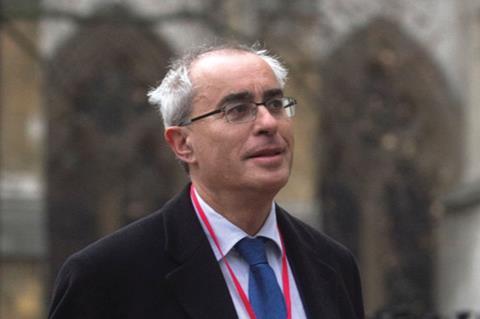Concerns in the House of Lords about ‘new remedies’ available to the courts and the abolition of certain appeals could herald major amendments to the Judicial Review and Courts Bill
The controversial reforms of judicial review face significant amendments in the House of Lords after peers raised concerns this week about the ‘new remedies’ available to courts and the abolition of certain appeals from the Upper Tribunal.
At the bill’s second reading on Monday, justice minister Lord Wolfson said the Judicial Review and Courts Bill’s introduction of suspended or ‘prospective-only’ quashing orders when a public authority’s decision is found to be unlawful will put ‘two new tools in the judicial toolbox’. He also said the removal of the Cart jurisdiction, through an ‘ouster clause’ preventing the review of the Upper Tribunal’s permission to appeal decisions, was ‘entirely appropriate’.
‘Parliament has a role – indeed, I would say, a duty – to intervene when the law takes a wrong turn,’ Wolfson said.
Labour opposes the judicial review reforms, with shadow minister Lord Ponsonby telling peers that ‘the Ministry of Justice is trying to fix something which is not broken’. He also raised concern that ‘the government will use abolishing Cart as a precedent to abolish other types of judicial review’.
The proposed changes, which will now be considered at committee stage, were welcomed by Lord Faulks, chair of the Independent Review of Administrative Law (IRAL), and former Supreme Court justices lords Brown and Hope – both of whom heard the 2011 Supreme Court case of Cart.
'Ousting or excluding the court’s jurisdiction over Upper Tribunal permission decisions could deny review to those denied asylum on the basis of fundamental errors of law'
Baroness Chakrabarti, shadow attorney general
Faulks said the reforms ‘broadly reflect’ what the IRAL recommended, adding that the new remedies ‘give greater flexibility to the courts and to smooth over the rough edges that quashing orders can cause’.
Brown suggested that suspended orders could make the courts ‘readier to find flaws in decisions impugned… if in doing so they would then avoid the administrative chaos’ that follows from quashing decisions.
However, leading public law silk Lord Pannick warned that suspended orders gave the judiciary ‘a remarkable power’, meaning ‘people who have suffered loss, damage, by reason of an unlawful government action would be denied compensation or damages for that wrong.

‘It would mean that people who had been prosecuted under an invalid statutory instrument, perhaps for a driving offence or a breach of the coronavirus regulations, would be unable to have their criminal record altered,’ Pannick said.
He added that ‘to give the judge a discretion to say that what was unlawful shall be treated as lawful is to encourage judges to enter into very treacherous waters.
‘The minister rightly emphasised that judicial review is not concerned with judges deciding the merits of a decision or a policy,’ Pannick said. ‘This new power will encourage and require judges to do precisely that.’
Lord Etherton, a former master of the rolls, predicted that the mandatory provisions in the bill relating to quashing orders would unleash ‘a plethora of satellite litigation and appeals’.
He suggested ‘a middle course’ in relation to the Cart jurisdiction, recommending that the High Court retain the jurisdiction ‘but provide that there shall be no appeal to the Court of Appeal from either the refusal of permission… or an unsuccessful substantive application’.
Etherton said he would also propose an amendment ‘to enable tribunals… to order an unsuccessful, legally represented party to pay pro bono costs to the Access to Justice Foundation, where the successful party has been represented pro bono’ – a suggestion Wolfson said the government accepted in principle.
Shadow attorney general Baroness Chakrabarti accused the government of ‘attempting to bind the hands of courts with a presumption towards prospective-only quashing orders’.
In relation to Cart, Chakrabarti said: ‘Ousting or excluding the court’s jurisdiction over Upper Tribunal permission decisions could deny review to those denied asylum on the basis of fundamental errors of law.’
Liberal Democrat peer and criminal silk Lord Thomas of Gresford suggested the government was seeking ‘to forge a template for an ouster clause… which they hope will in the future be used in other bills’.
But Brown said the ouster clause was not ‘an intended model for future clauses wherever there is legislation. It admirably illustrates that such clauses can in various circumstances be both entirely justified and desirable; and, secondly, that they can be limited in their effect, tailor-made to the context’.
Former Conservative leader Lord Howard (Michael Howard QC) said it was ‘deeply disappointing’ that the bill only sought to reverse Cart, and described the justices of the Supreme Court as ‘unelected, unaccountable and the product of a process which in many ways resembles a self-perpetuating oligarchy.
‘The issue to which the growth of judicial review gives rise is not the rule of law but rather who makes the law,’ he added.































1 Reader's comment